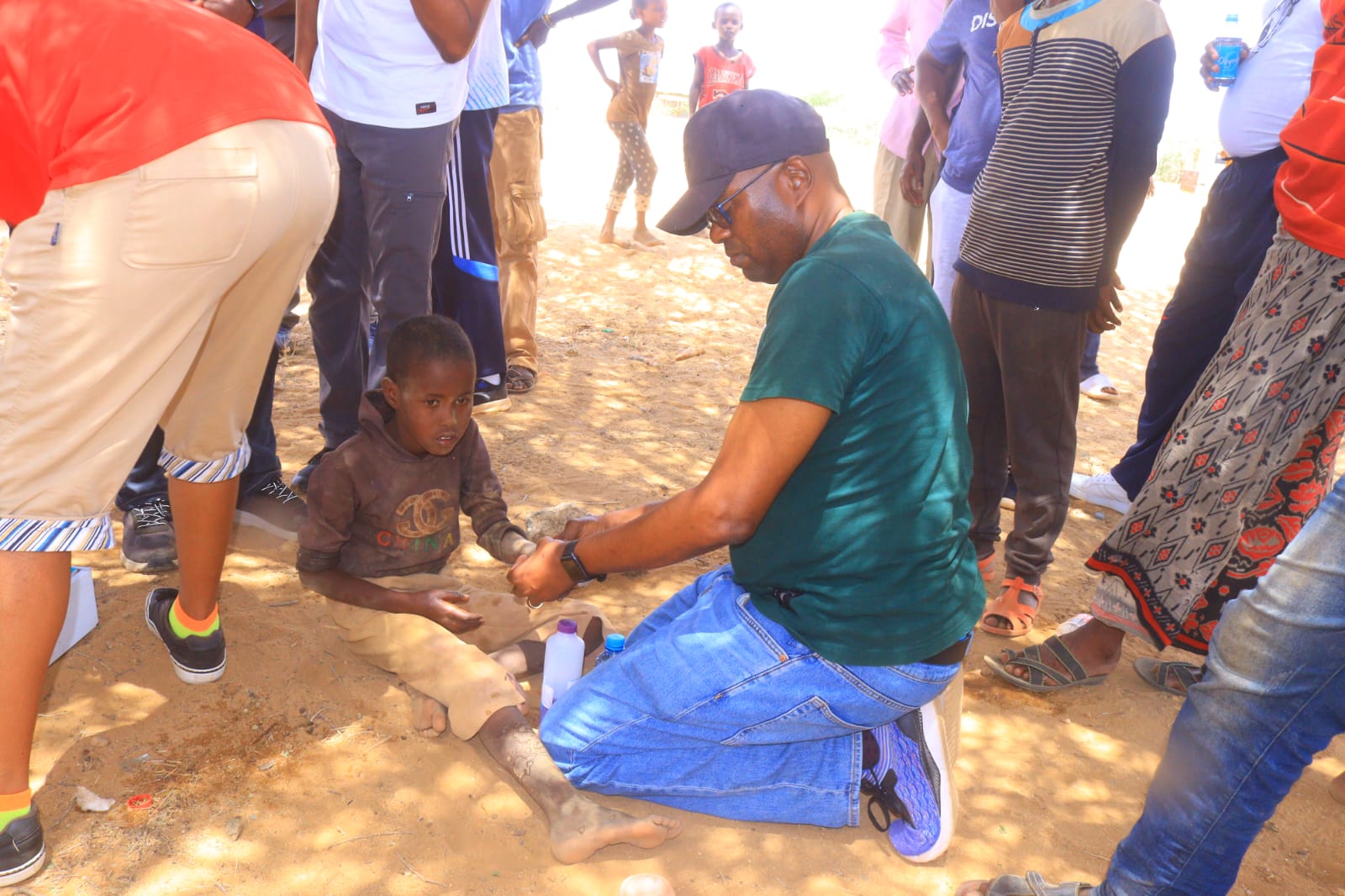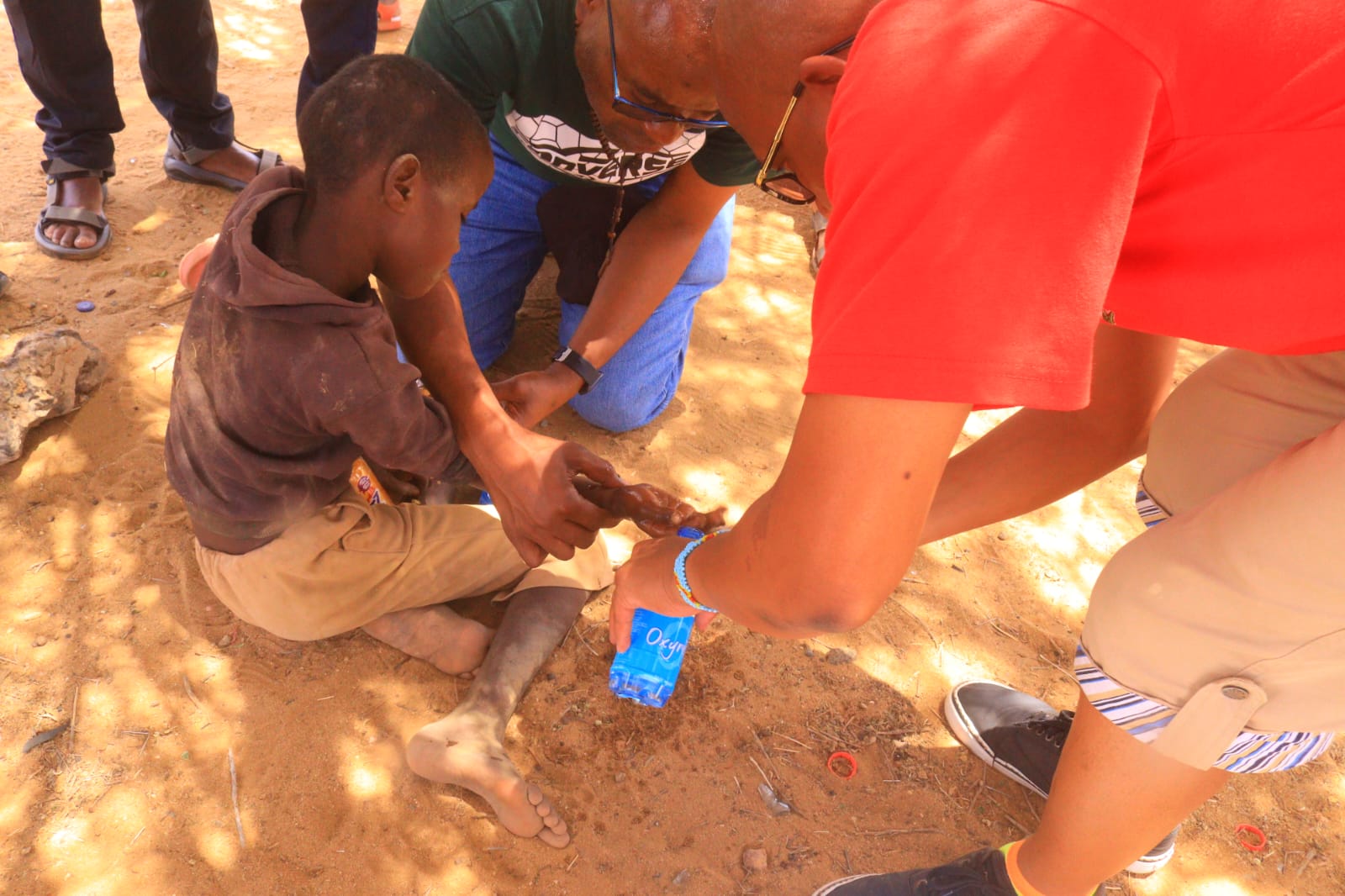

A scorpion bite victim in Marsabit was on Monday saved from death—thanks to the quick efforts of a group of men visiting from the Shrine of Mary Help of Christians, Don Bosco Upper Hill, Nairobi.
Their mission in the county was simple: spread faith, share hope and support Don Bosco Korr, their sister mission serving the pastoralist communities of northern Kenya.
They stopped briefly to collect a goat—a gift from the local community—for their evangelisation feast in Ngurunit, several kilometres away.
Then, a scream cut through the desert silence.
Redento Dabalen, a subcounty officer from Laisamis and one of the Catholic Men’s Association members, spotted a small crowd gathering beneath a tree not far away.
Curiosity turned to alarm when he saw a girl lying motionless on the sand.
“She was sweating, trembling—her lips had turned pale. The villagers said she had been bitten by a scorpion,” Dabalen recalled.
Her father had gone off on foot to look for transport—a desperate, often futile mission in this vast terrain where the nearest health centre can be over 40 kilometres away.
The CMA men rushed into action. Among them was a first aider who carried a small medical kit.
They cleaned the wound, stabilised the girl and administered antivenom before rushing her to the nearest health facility.
By the time her father returned, the child was breathing normally again. She survived.
What began as a journey of faith had become a battle for life.
In Namarei, children grow up with an unspoken fear: snakes and scorpions are never far away.
Beneath the rocks, inside shoes, under firewood piles—danger lurks in ordinary places.
Yet, in most of northern Kenya, there are few hospitals, fewer doctors and often no antivenom in stock.
According to data from Health Action International, only 27 per cent of health facilities have antivenom available at any given time. In some arid counties, that number drops to single digits.
The Kenya Snakebite Research and Intervention Centre estimates that over 20,000 snakebites occur annually in Kenya, but less than half are ever reported.
Thousands more—including scorpion stings—go unrecorded, their victims quietly treated by traditional healers or buried without diagnosis.
The Namarei rescue was more than divine coincidence—it was a wake-up call.
“We came here to preach. But God showed us that faith must also heal,” CMA chair Paul Mutiso said.
Since 2023, the CMA has been visiting parishes in Korr and Ngurunit, not only to spread the gospel but to support community development, helping repair schools, drill boreholes and donate medicines.
After the Namarei incident, they’ve now added first-aid training and emergency response to their outreach priorities.
It’s a model that health experts say could save many lives in places where ambulances cannot go.
“Community-based responders, church groups, teachers, youth—are often the first to reach bite victims. If we train them to provide basic first aid and transport, we can cut mortality by more than half,” said Dr George Omondi, a medical officer working with K-SRIC.
Jacob Galgalo, an elder in Laisamis, said the nearest equipped hospital can be a three-hour journey on a good day.
“Sometimes we just watch as our people suffer. We call for help, but there’s no ambulance. Local dispensaries are often staffed by one nurse with no power supply and no antivenom,” Galgalo said.
Meanwhile, the Kenya Wildlife Service Marsabit office is also calling for more research into venomous species that inhabit the arid north, from puff adders and black mambas to the deadly Parabuthus scorpion.
“This region is a hotspot for bites, but we know very little about the specific species, their venom profiles, and how to develop targeted antivenoms,” KWS assistant director Robert Njeru said.
The child who nearly died in Namarei has become a quiet symbol of resilience. Her family still visits the local Don Bosco outstation, where she is affectionately called ‘the miracle girl.’
Her survival is not just a story of luck or faith—it is a lesson in what is possible when compassion meets preparedness.












